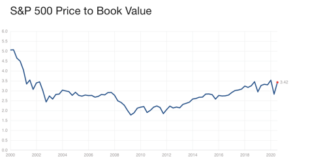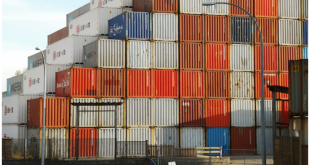The following article appeared on Progressive Post, the website of the Foundation of Progressive European Studies (FEPS) Today’s capitalism cannot tackle climate breakdown and cannot prevent the loss of biodiversity. It considers work as a cost to be minimised, to the detriment of the economy and the social meaning of work. High rates of return on capital (interest) require ever-rising extraction of the earth’s finite assets and the felling of its biodiverse ecosystem. Nature is crowded out...
Read More »Commercial property: * Prêt a Payer *, or Prêt-à-Fermer?
The government wants us to return to our office workplaces in the cities. The FT tells us:“The government will [this] week launch a media campaign to encourage more employees back to their workplaces amid growing concern in Downing Street over the rising number of job losses at service businesses in city centres that are reeling...
Read More »Commercial property: * Prêt a Payer *, or Prêt-à-Fermer?
The government wants us to return to our office workplaces in the cities. The FT tells us: “The government will [this] week launch a media campaign to encourage more employees back to their workplaces amid growing concern in Downing Street over the rising number of job losses at service businesses in city centres that are reeling from a lack of customers. And from Sky News (Aug 20): “Just one in six workers have gone back to work in cities this summer after companies and staff ignored...
Read More »The Wealth of Corporations: Why Firms Have Zero Net Worth, and Why It Matters
Steve Roth ([email protected]) is a serial entrepreneur and the publisher of Evonomics.com. T. Sabri Öncü ([email protected]) is an economist based in İstanbul, Turkey. A slightly edited version of this article first appeared in the Indian journal, Economic and Political Weekly on 11 July 2020. “Financial Assets = Liabilities.” It’s one of the great accounting-identity truisms of economic understanding — both among traditional, mainstream...
Read More »The Wealth of Corporations: Why Firms Have Zero Net Worth, and Why It Matters
“Financial Assets = Liabilities.” It’s one of the great accounting-identity truisms of economic understanding — both among traditional, mainstream economists, and even (especially) among many heterodox, “accounting based” practitioners. It seems obvious: When a company issues and sells bonds, it posts a liability to its balance sheet; the bond buyers hold financial assets on theirs.[1] The problem is, that truism isn’t even close to true. The most obvious example is corporate...
Read More »Remembering John Weeks
Late last month, pioneering socialist economist John Weeks passed away. Ann Pettifor remembers her colleague and friend – and his contributions to left-wing politics. This piece first appeared in Tribune magazine on 08 August, 2020. Please note correction at the end of this piece. John Weeks, brilliant Left economist and public intellectual, would have been well pleased that three days after his death the Financial Times published a letter he had signed attacking the...
Read More »Remembering John Weeks
Late last month, pioneering socialist economist John Weeks passed away. Ann Pettifor remembers her colleague and friend – and his contributions to left-wing politics. This piece first appeared in Tribune magazine on 08 August, 2020. Please note correction at the end of this piece. John Weeks, brilliant Left economist and public intellectual, would have been well pleased that three days after his death the Financial Times published a letter he had signed attacking the Office for Budget...
Read More »Green shoots: the best books to inspire hope for the planet
This review of books to inspire a green transformation appeared in The Guardian on 18 July, 2020. Everyday life has been upended by the pandemic, but the Arctic heatwave is a reminder that the climate crisis still poses an urgent threat to humanity. We will need resolve, ambition and optimism as we emerge from lockdown, so we can forge the green recovery that is so crucial. One book that has sustained my faith in the future is Herman E Daly and John B Cobb’s hopeful...
Read More »Green shoots: the best books to inspire hope for the planet
This review of books to inspire a green transformation appeared in The Guardian on 18 July, 2020. Everyday life has been upended by the pandemic, but the Arctic heatwave is a reminder that the climate crisis still poses an urgent threat to humanity. We will need resolve, ambition and optimism as we emerge from lockdown, so we can forge the green recovery that is so crucial. One book that has sustained my faith in the future is Herman E Daly and John B Cobb’s hopeful vision, For the Common...
Read More »The duel: Should we aim to get the economy back to “business as usual”?
The following debate between Paul Wallace and Ann Pettifor appeared in Prospect magazine on 10 July, 2020.Is our capitalist economy an unparalleled engine of prosperity, or a human and ecological disaster? Two contributors debate whether the system is worth savingYes—Paul Wallace It is tempting, when living through a once-in-a-century event such as the coronavirus pandemic, to say everything must change: that it’s time to tear up the rulebook and to create a completely new...
Read More » Prime, Policy Research in Macroeconomics
Prime, Policy Research in Macroeconomics







